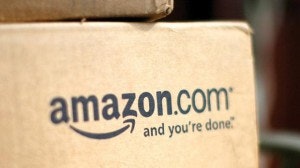Amazon.com, Inc. (NASDAQ:AMZN) recently learned that Google Inc (NASDAQ:GOOG) will launch same day delivery service, starting its pilot program in the San Francisco Bay area. For an interim period, Google’s new service, Google Shopping Express, will be offed for free.
The new service from Google Inc (NASDAQ:GOOG) is expected to hit Amazon in its soft belly, a $65 billion revenue belly to be precise. Unfortunately, Amazon does not offer same day shipping. The “word” on the street is that Google’s new strategy was primarily introduced as a PR tool, and an effective strategy to pitch into the e-commerce market.

Sales tax
Amazon.com, Inc. (NASDAQ:AMZN) is well known as the pioneer of no-sales tax model. Recently, Amazon has been under pressure in many states, including the Golden State, California. As of today, Amazon collects sales tax from buyers in Kansas, Kentucky, New York, North Dakota, and Washington. If Amazon’s tax advantage erodes, its competitive advantage over traditional bricks-and-mortar retailers will probably disappear. The drawing of sales tax as the new reality in the world of online commerce marks a turning point for states, vendors, and consumers.
There is a lot of money at stake, and Jeff Bezos and company are not willing to give up so quickly. The folks at Amazon are already in the midst of a long battle. Amazon has gone to court against the IRS in a case that involves transfer pricing (Amazon claims the IRS is using an inaccurate estimate for calculating it transfer pricing taxes).
Moreover, in 2011, Amazon.com, Inc. (NASDAQ:AMZN) disclosed in a SEC filing that it faces up to $1.5 billion in additional federal taxes for the years 2005-2012. In essence, Amazon attorneys and accountants are going to work overtime in the next coming years. As a result, Amazon is going to face significant rise in legal, accounting, and administrative fees.
Competition
The e-commerce market is expected to continue growing at a phenomenal pace. In 2012, the global e-commerce market was estimated at about $1 trillion. Global e-commerce sales will top $1.25 trillion by 2013. No wonder why Google’s money making machine was eager to build its e-commerce operation.
Google Inc (NASDAQ:GOOG) has enlisted Target Corporation (NYSE:TGT), Walgreen Company (NYSE:WAG), and Staples, Inc. (NASDAQ:SPLS) to name a few major brands. I truly believe that it is only a matter of time before more chains will enlist with Google Shopping.
Wal-Mart Stores, Inc. (NYSE:WMT) is becoming an important rival in the e-commerce field. Wal-Mart has more than 10,700 retail units in 27 countries. When it comes to logistics, Wal-Mart is in better position than competing peers. Wal-Mart recently announced its own plan for same-day shipping. The folks at Wal-Mart plan to crowd-source its shipping operation. Personally, I am not sure how many consumers will adopt the idea.
The stiff competition in online retail market recently led UBS to follow JPMorgan, Piper Jaffray and other analysts to initiate coverage on Amazon.com, Inc. (NASDAQ:AMZN) with Neutral rating. All cited operating costs as the main concern.
The Foolish bottom line
I believe Amazon is going to lose ground in foreseeable future due to competition from Google Inc (NASDAQ:GOOG) and other online retailers, the sales tax battle, and unconvincing analyst sentiment. Moreover, the stock is completely overpriced. Given the new environment in which Amazon.com, Inc. (NASDAQ:AMZN) operates, I strongly believe it is not going to disappear, but would lose ground and perhaps dip back to the low 200’s, which is closer to its real value.
Yaniv Hirsch has no position in any stocks mentioned. The Motley Fool recommends Amazon.com and Google. The Motley Fool owns shares of Amazon.com and Google.


